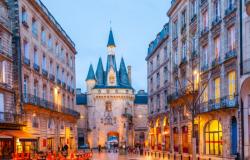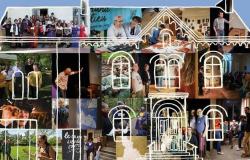A month after the tragedy, the south-east of Spain remains in shock from the floods which left 230 dead and billions of euros in damage.
Beyond the destroyed landscapes, what stands out on site is the still very present smell of mud.
A TF1 team went to meet residents and volunteers for whom a return to normal is still far away.
Follow the full coverage
Deadly floods in Spain
A return to normal is still far away. A month after the floods which left 230 dead and billions of euros in damage in dozens of towns in the south-east of Spain, the landscapes have seemed frozen since the tragedy in the affected villages.
In Pecanya, in the province of Valencia, for the first time in a month, the military evacuated the debris of ravaged houses. “Come and see my place, you will see what I have left”, launches in the report at the top of this article, Joachim who wishes to show how he lives now. “Everything I have now, they gave it to me. I sleep on a mattress, on the floor. We put it like that and I sleep there,” he continues.
“We’re still cleaning.”
In Paiporta, residents have gotten into the habit of making their way through the rubble. “I went up there and made a detour passing behind these houses until they finished the bridge,” explains a woman in the middle of the devastated landscapes. Beyond the images, what marks the people on site is the smell of mud that is still very present a month later.
In each neighborhood, we still have to clean and clear away. Maïka is a teacher, she took leave for several weeks to help evacuate the water still present. “It's been a month since this happened and we're still cleaning up. We really need volunteers.” she says, in the middle of a parking lot still covered in mud.
-
Read also
Floods in Spain: the president of the Valencia region recognizes “errors” in the management of the crisis
While few supermarkets have reopened, food is in short supply. “I'm here because even after a month, if I want to eat hot food, I have to come here. A month I eat pasta, rice, rice and pasta”, summarizes Pilar, 65 years old, who has to wait several hours for some provisions distributed free of charge. It is impossible for many residents to go shopping outside the city because most no longer have vehicles. As evidenced by the mountains of car wrecks accumulating everywhere in the region, as in the video above. In total, 100,000 vehicles have been declared damaged since the tragedy.
In this continued chaos, French volunteer firefighters are still on site to help search for the missing. “There are a lot of vehicles that have not been looked at. We look at signs, we see if there are clothes, clothes and so on. Generally, if we have been asked to look at a building, it “There was a small investigation initially, which was carried out by the local authorities to find out if anyone was missing”, explains one of them, Nicolas Blard, at the microphone of TF1. According to a latest report, eight people have not been found. Some areas still remain difficult to access.






